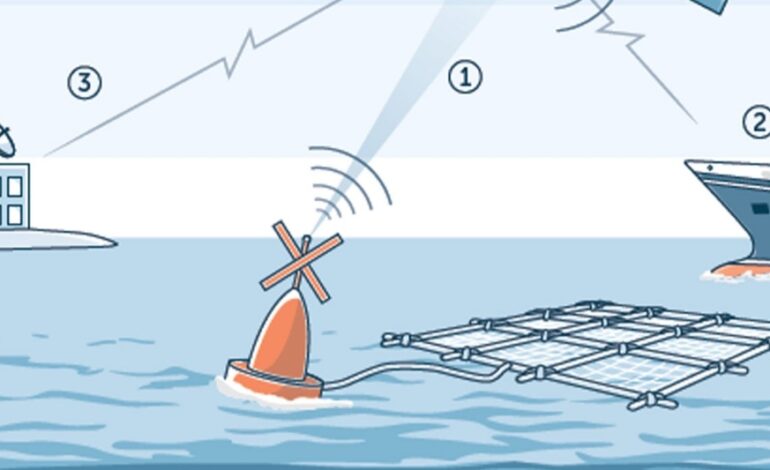
(FAO) – The upcoming meeting of Joint Working Group of the Western Central Atlantic Fishery Commission (WECAFC), The Caribbean Regional Fisheries Mechanism (CRFM), The Japanese International Cooperation Agency (JICA) and The French National Institute for Ocean Science (IFREMER) from February 14 -16 will primarily focus on Moored Fish Aggregating Devices (MFAD). The delegates will pay special attention to the management and monitoring of the FADs across the region, which would ensure the sustainability of the target fisheries, including tuna and dolphinfish. It is anticipated that 50 delegates from 15 member countries including Brazil, Colombia, Dominica, Dominican Republic, Haiti, Jamaica, Netherlands (Caribbean), Nicaragua, Panama, St. Lucia, St. Vincent and the Grenadines, United Kingdom (Bermuda, Montserrat), Trinidad and Tobago, United States of America, and Venezuela, and seven partners organizations will attend and participate in the deliberations.
While the meeting will be convened and hosted by Dominica virtually, it will be led by the Food and Agriculture Organization of the United Nations (FAO), with the support of the European Union-funded project “Support to the Secretariat of WECAFC in implementing targeted actions of the 2019-2020 Workplan on improved regional fisheries governance”. Dr Kyra Paul, Permanent Secretary, Ministry of Blue and Green Economy, Agriculture and National Food Security, will deliver an opening speech.
The MFAD devices are anchored or drifting objects placed in the ocean by fisherfolk to attract fish, tuna and tuna-like fishes, which would typically gravitate towards them making the catch much easier. There are many known benefits for using the FAD’s including increase in catches, improved livelihood of fisherfolk, food security and reduced overall cost of fishing.
Although the fishing sector in the Caribbean has experienced improved catches of large fish using the Moored Fish Aggregating Devices (MFAD) over the past three decades, the sustainability of the catches is of significant importance for the livelihoods of the fisherfolk. More importantly, as the COVID-19 pandemic continues to negatively affect the region, the staging of this meeting is both timely and important.
The meeting will provide a valuable opportunity to share information on the current state of MFADs fisheries across the Wider Caribbean and to discuss important recently drafted advisory documents such as the Caribbean Regional Management Plan for the MFADs fishery and the guides for the implementation of local MFADs management plans and for improved monitoring of the MFADs fisheries. The meeting will also provide an opportunity to share experiences on the use of Information and Communication Technology (ICT) to improve monitoring of MFADs fisheries.
Given the importance of the meeting, The Central American Fisheries and Aquaculture Organization (OSPESCA) and other partners organizations and key stakeholders will also participate.
Jullan Defoe, Chief Fisheries Officer of the Fisheries Division of Dominica and Convener of the Working Group indicated, “To achieve the sustainable harvest and utilization of offshore pelagic species caught on MFADs requires dialogue among the many states and territories within the WECAFC group which depend on this fishing technology to support livelihoods of small-scale artisanal fisheries and national food security”. He further added, “The efforts of FAO and its partners, which are working diligently to achieve this goal, are commendable”.
Adrian LaRoda, Chair of The Caribbean Network of Fisherfolk Organizations (CNFO) also added his views and stated, “The CNFO recognises FAD fisheries to be important to the survival and health of Caribbean fisherfolk, and would very much welcome any recommended management approaches that are not conservation centered and embrace responsible stewardship and sustainable use.”
Meanwhile, Yvette Diei Ouadi, Fishery and Aquaculture Officer at FAO and Secretary of WECAFC emphasized the importance of the meeting and expressed how she was heartened by the heightened interest of many diverse stakeholders across the region and by the attendance of actors with experience with MFADs from other regions, such as the Pacific. She stated, “This will certainly create a conducive space for sharing experience and good practices in MFAD fishing. The meeting would help guide the harmonization of management efforts towards the common goal of the sustainable use of the regionally shared fish stocks that are exploited using MFADs”.
The outcome of the deliberations will be tabled at the 18th Session of the Commission scheduled for July 2022 for formal endorsement by WECAFC members to ensure that the benefits of these fisheries for food and nutrition security, income earning, and livelihoods are effectively secured while maintaining healthy fish stocks and ecosystems.







